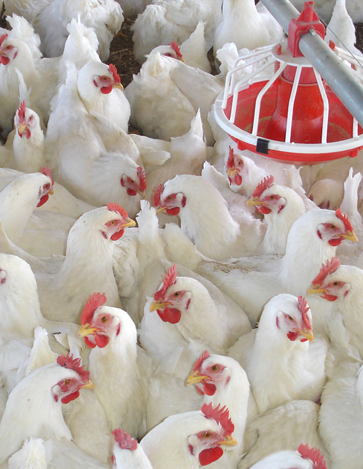DAHD launches “Credit Guarantee Scheme” for MSMEs engaged in livestock sector
Scheme to act as a key enabler and risk mitigation measure for lending institutions and enabling collateral free funding to livestock sector.
Department of Animal Husbandry & Dairying, Ministry of Fisheries, Animal Husbandry and Dairying is implementing the Credit Guarantee Scheme under Animal Husbandry Infrastructure Development Fund (AHIDF) to strengthen credit delivery system and facilitate smooth flow of credit to the Micro, Small & Medium Enterprise (MSMEs) engaged in Livestock sector without hassles of collateral security. For operationalizing the scheme, DAHD has established a Credit Guarantee fund Trust of Rs 750.00 crores, which will provide credit guarantee coverage up to 25 per cent of the credit facilities extended to the MSMEs by the eligible lending institutions.
The credit guarantee scheme facilitates access to finance for un-served and under-served livestock sector, making availability of financial assistance from lenders to mainly first-generation entrepreneurs and under privileged section of society, who lack collateral security for supporting their ventures.
The main objective of the Credit Guarantee Scheme is that the lender should give importance to project viability and secure the credit facility purely on the basis primary security of the assets financed.
The establishment of credit guarantee fund trust was approved under the Prime Minister’s AtmaNirbhar Bharat Abhiyan stimulus package of Rs.15000 crores“ Animal Husbandry Infrastructure Development Fund” (AHIDF) for incentivizing investments by individual entrepreneurs, private companies, MSMEs, Farmers Producers Organizations (FPOs) and Section 8 companies to establish (i) the dairy processing and value addition infrastructure, (ii) meat processing and value addition infrastructure, (iii) Animal Feed Plant, (iv) Breed Improvement technology and Breed Multiplication Farm (v) Animal Waste to Wealth Management (Agri Waste Management) and (vi) Setting up of Veterinary Vaccine and Drugs Manufacturing facilities.
One of the key features of the AHIDF scheme is the establishment of a Credit Guarantee Fund Trust of Rs. 750.00 Crores. DAHD has formed a trust with NABSanrakshan Trustee Company Private Limited, a wholly owned subsidiary of NABARD for the establishment of a Credit Guarantee Fund Trust for extending the credit guarantee to Micro, Small & Medium Enterprises under AHIDF scheme. This fund trust established in March 2021 is the Nation’s first ever fund trust under Credit guarantee scheme of AHIDF in the agriculture and Animal Husbandry sector and is a path-breaking initiative taken by DAHD which would exponentially increase the number of MSME units getting benefits of AHIDF scheme and strengthen the ecosystem for the collateral-free credit from the banks.
The credit guarantee portal has been developed as a rule based B2B portal and implemented the enrolment of eligible lending institutions under Credit Guarantee Scheme, issuance/renewal of credit guarantee Cover and settlement of claims.
Notably, the initiative of credit guarantee scheme taken by DAHD is expected to greatly increase the participation of MSMEs engaged in livestock sector leading to increased flow of credit to the sector and strengthen the MSMEs to boost the overall rural economy through strengthening the Livestock sector which is of one of the most potential sectors seeking development.
Scheme to act as a key enabler


